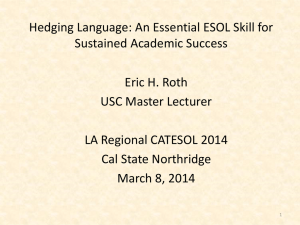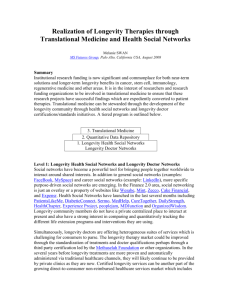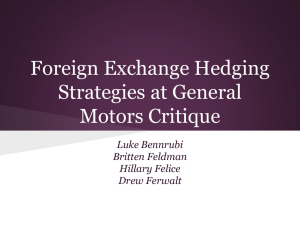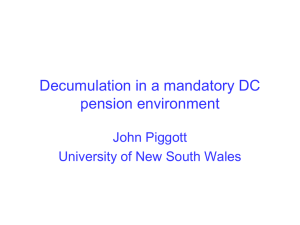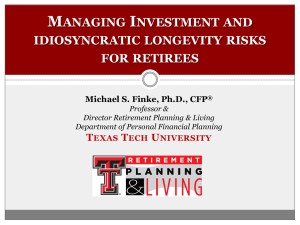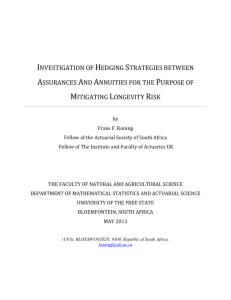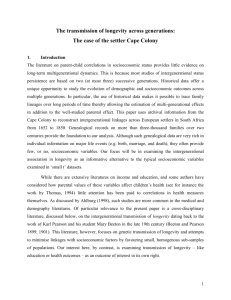Document
advertisement
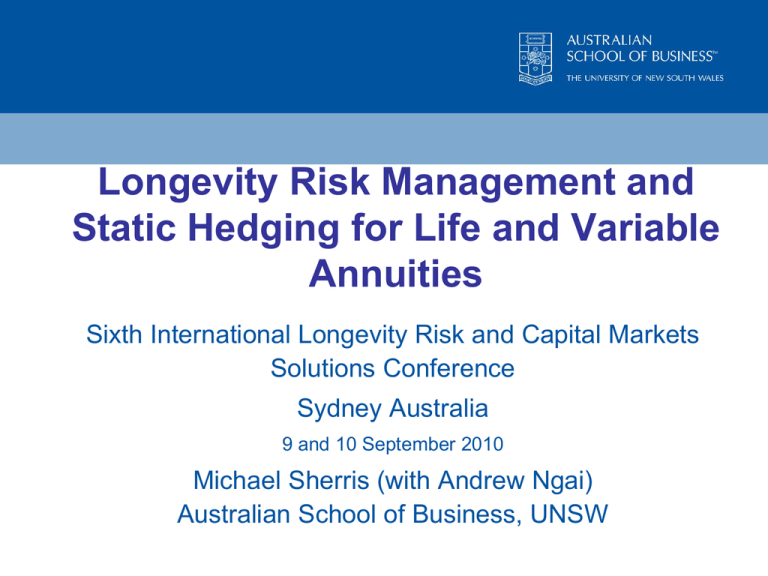
Longevity Risk Management and Static Hedging for Life and Variable Annuities Sixth International Longevity Risk and Capital Markets Solutions Conference Sydney Australia 9 and 10 September 2010 Michael Sherris (with Andrew Ngai) Australian School of Business, UNSW Overview Longevity Risk Life annuities and hedging instruments Market and mortality models Hedging strategies and effectiveness using Longevity Bonds and Derivatives Basis risk and market price of longevity risk Longevity Products - Retail Life Annuities, Deferred Annuities, Variable Annuities (+GLWB) Longevity hedging: q-Forwards • Pay actual (population) qx,t in exchange for agreed fixed qFx,t • Individual ages and 5-yr Bucketed Longevity hedging: Coupon Longevity Bond • Payments in line with actual survival probability S65(t) Static Hedging – ALM ALM interest rate risk only Simulated payments for static hedged portfolio Static Hedging ALM with longevity derivatives Static Hedging ALM with 20 year longevity bonds Static Hedging ALM with longevity swap Market Model – Economic Scenario Generator Vector Error Correction Model with Regime Switching (RSVECM) Long run equilibrium, volatility regimes Market model Mortality Model –Models mortality rates in cohort direction –Logit age structure for rate changes (stationary) –Age dependence using principal components (errors are not iid) Mortality Model Mortality Basis Risk Portfolio of annuitants – hedging instruments based on population index Scenarios Shortfall risk – Life annuities Inflation indexed annuities have substantial shortfall risk from uncertain future inflation Shortfall risk – Deferred Life annuities + GLWB VA + GLWB provides limited longevity protection – hedging has little impact Scenarios – Annuities (Life/Indexed) Scenarios – Deferred Annuities + GLWB Basis Risk and Hedging Effectiveness Hedging Cost and Hedge Effectiveness Summary and Main Conclusions • Static hedging (ALM) strategies reduce longevity risk particularly for life annuities (immediate and deferred) • Much less effective for inflation indexed annuities (inflation risk predominates) • VA with GLWB provides limited longevity protection and longevity hedging is of little value • q-Forwards have additional basis risk over longevity bonds (mortality rates vs survival probabilities) • Basis risk (annuitant vs population, bucketing) not critical for hedge effectiveness • Cost of hedging (price of longevity risk) is an important factor for hedge effectiveness (both derivatives and longevity bonds)

